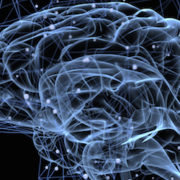LAUGHTER REALLY IS MEDICINE: HOW TO LAUGH OFF HOLIDAY DRAMA
Article Found on Chalkboard Mag
DO YOUR HOLIDAY family gatherings feel ripe for an appearance on Overheard LA? Maybe your visits home conjur up scenes worthy of an emo indie film or the flight your currently on is as salty as your grandma’s gravy. What ever the case — we get it. In a season full of feelings, might we suggest amping up your sense of humor?
Dr. Mike Miller is the author of Heal Your Heart, a compendium of compelling medical research that points to the benefits of positive emotions. Dr. Miller — who is also part of Pressed Juicery’s Medical Advisory Board — is known as a leader in the fields of preventive and behavioral cardiology. We’ve been blown away by his “Positive Emotions Prescription” that confirms the benefits of just about every form of mind-body wellness we love.
Enjoy this excerpt from Heal Your Heart below. In it, Dr. Miller reminds us of the power of laughter – not just to improve our mood, but our health and longevity too.
You could say that your brain chemicals “cross talk” with your heart chemicals, resulting in a mind-to-heart connection. It’s a beautiful process that highlights the mind-body connection, and more specifically, the interrelationship between emotions and the vasculature. Our studies were the first to show a direct connection between positive emotions and blood vessel expansion, strongly supporting the release of nitric oxide, and thus the host of healthy cardiovascular responses nitric oxide confers.
You really can laugh your way to health and well-being. Laughter has been shown to improve sleep, and people who get adequate sleep experience lower stress, improved memory and focus, and decreased effects of heart-damaging insomnia.
Let’s take a look at some of the best benefits of laughter, beginning with cardiovascular benefits and moving on to healthy effects on weight control, sleep, memory, and social connection…
LAUGHTER CAN PREVENT STROKES.For years, medical schools taught that regardless of lifestyle, human blood vessels progressively stiffen and narrow over the course of a life span, aging until one suffers a debilitating or fatal cardiac event. This stiffening or hardening of the arteries—commonly known as arteriosclerosis or atherosclerosis—was assumed to be a natural consequence of aging, as plaques containing cholesterol built up in the arteries, narrowing the arteries and making them stiffer. The narrow, stiff arteries impede blood flow and produce angina over time, and in the worst-case scenario, pieces of plaque can break off and create a full blockage, resulting in heart attack or stroke.
The results of arteriosclerosis are undisputed. But as we’ve seen, research studies are overturning the outdated explanation of “naturally” deteriorating blood vessels. In reality, one of the main causes of arteriosclerosis actually has a great deal more to do with our old enemy, stress—that ubiquitous and underappreciated risk factor.
We now know that experiencing positive emotions directly affects vascular health and that through the power of laughter, you can reduce the deterioration of your blood vessels. In effect, experiencing positive emotions that include laughter may help to maintain the youthfulness of your blood vessels in much the same way that sun-screen protects your skin—but without the chemicals, of course!
LAUGHTER LOWERS BLOOD PRESSURE. Most of us can rattle off a short list of factors that contribute to high blood pressure: high sodium intake, smoking, obesity, and lack of exercise. But the single most overlooked reason for hypertension is stress. If stress can cause your blood pressure to rise, can laughter that reduces stress also reduce your blood pressure?
In a 200-person study conducted in India and presented at the annual meeting of the American Society of Hypertension in 2008, 100 healthy adult men and women participated in seven sessions of laughter yoga over 3 weeks. At the end of the 3 weeks, laughter yoga participants had lower systolic and diastolic blood pressure, lower levels of cortisol (a stress hormone), and less perceived stress than the control group.9 They experienced a similar reduction in systolic blood pressure (approximately 5 to 7 mm Hg) as the Japanese study found.10 It’s important to note that the Indian study’s subjects’ average blood pressure before and after the laughter phase (128/82 mm Hg versus 121/79 mm Hg) was not in the hypertensive range, and it would be important to repeat these studies in men and women with high blood pressure.
Still, these results are remarkable, as you could expect a similar reduction in blood pressure if you took a blood pressure medication, followed a low-salt diet (less than 1 teaspoon of sodium per day), or lost 10 pounds. If the entire US population achieved a drop in blood pressure of just 5 mm Hg, the risk of heart attacks or strokes would be cut by 5 to 15 percent. Translation? Even with a conservative estimate, that’s as many as 30,000 lives saved per year. These results alone are enough for me to prescribe laughter to all of my patients and to enthusiastically recommend it for everyone. But if you’re still not convinced, read on.
LAUGHTER TORCHES CALORIES + CRAVINGS.Laughter is great exercise. Researcher Maciej Buchowski and colleagues at Vanderbilt University found that laughing for 10 to 15 minutes can burn up to 40 calories. The reason appears to be the increased work of numerous muscles in the face, throat, and abdomen that are used during hearty laughter.
There’s also evidence that laughter can reduce binge-eating. Following a laughter therapy program allowed author Katie Namrevo to lose 35 pounds, diminish her stress-induced cravings, and gain more energy to pursue aerobic activities. She describes her experience in her 2004 book Laugh It Off! Weight Loss for the Fun of It. Mary Dallman, PhD, professor of physiology, and her colleagues at the University of California, San Francisco, have proposed that under chronic stressful conditions, people are subconsciously drawn to comfort foods. These foods, which are characteristically high in fat and carbs, in turn suppress the activity of the stress hormone cortisol. Laughter terminates this vicious cycle. The result is that regular engagement in laughter may result in significant changes in body weight that can reduce the likelihood of insulin resis-tance, diabetes, and heart disease.
LAUGHTER X SLEEP.It was once thought that high levels of the stress hormone cortisol produced insomnia, but a 2003 study suggested that the opposite is true: Chronic insomnia—which is often caused by chronic stress!—produces higher levels of cortisol.
In a Korean study of 109 men and women over age 65, research-ers found that just four laughter therapy sessions over a 1-month period were associated with more restful sleep as well as reduced feelings of depression. Insomnia is so common that nearly one out of every two people complains of poor sleep habits! But the sad reality is that not only does insomnia adversely affect our productivity and emotional state, it also increases our risk of depression, hypertension, metabolic syndrome, and heart disease. My medical advice? Before bedtime you should turn off the stressful news and look for comedy or lighthearted reading.
LAUGHTER X MEMORY.Here’s a fascinating fact: The right frontal lobe of the brain processes information related to memory and is also associated with the ability to appreciate humor. One can say that humor and memory work hand in hand, as studies have shown that people remember things that are perceived as humorous.
Because the brain processes that control humor and memory are closely linked, you can rely on humor as an aid to improve your memory. Humor helps your mind create visual images that become useful as a creative strategy for memory enhancement. When you recount incidents that occurred long ago, you likely find that vividly funny details jump readily to mind. My own experience in a summer job showcases this benefit of memory working in concert with humor. Numerous studies have concluded that humorous material tends to be recalled more readily than nonhumorous material, and memory books encourage readers to use humor as an aid in recalling lists of information. Some of my most effective teachers were also dynamic and funny.
LAUGHTER X RELATIONSHIPS.During prehistoric times, when our language was in its infancy, it is likely that laughter became an important and adaptive socialization skill. In fact, communication through laughter may have been an early test of survival of the fittest because early humans who did not engage in group laughter were likely to be alienated and left to fend for themselves. Even today, laughter is an important and early socializa-tion skill.
Laughter becomes essential for participation in groups and for achieving social acceptance. It not only relaxes us, it also signals others that they can relax around us. Laughing is a highly effective form of communication and it facilitates connection.
Laughter is also a key ingredient in successful relationships, yet people often underestimate its importance. Research by my colleague Robert Provine, PhD, pro-fessor of psychology at the University of Maryland, Baltimore County, has shown laughter’s important role in mating. On average, females laugh more than twice as much as males, while males are more likely to try to be amusing. The female’s laughter serves as a primary barometer in strong relationships, and the earliest hint of a problem in the relationship is when a woman no longer finds her partner funny. According to independent findings of psychologists Dr. John Gottman and Dr. Michelle Golland, the most important predictor of divorce is the absence of laughter in a marriage.Partners who recognize this important clue at an early stage can increase the likelihood of resolving underlying conflicts before any dis-harmony spins out of control. Doing so may save the relationship while also protect-ing the heart health of both partners—divorce is widely known to be one of the most stressful experiences people can endure.
It is absolutely clear that laughing with others—in love, in the workplace, or in any social situation—reduces tension while improving morale, cooperation, and cardiovascular health. So schedule time with your funniest friends, or reach out and reconnect with fun-loving friends with whom you’ve lost touch. Strong bonds are formed and strengthened when people laugh together, and laughter is always a more enriching experience when it’s shared with others.
Laughing promotes whole-body health, it relieves stress, it enhances memory, it facilitates social connection, and it’s simply fun. Yet for some of us, laughter doesn’t occur on a daily basis. While the average 5-year-old laughs as many as 300 times a day, the average adult laughs a paltry four times a day. Our lives are busy and often stressful, and not all of us have the built-in advantage of living with a funny person or having a close friend or colleague who’s particularly funny. This means that most of us are going to have to be quite intentional in seeking out our daily dose of laughter.
To lighten up each day, you can make small changes that relieve tension, release you from inhibitions, and foster positive emotions that become a platform for laughter. Here are a few tips I prescribe to my patients to help them find and create more laughter in their lives…
BOOKMARK IT Keep links to humor bookmarked, and then the moment you find yourself in need of a laugh—that is, in need of stress relief, an energy boost, and a heart-healthy dose of endorphins and nitric oxide—click away. Try: YouTube, The Onion, CollegeHumor, Reddit
GET THE APP Developers have designed dozens of apps to elicit laughter, and with everything from recordings of laughing babies to storehouses of jokes accessed with a tap of a finger to one-line “zinger” generators, there’s something out there that will appeal to every sense of humor. Try: “The Gift of Laughter”
WATCH FOR IT Check out the American Film Institute’s 100 Funniest Movies, or this list of 100-plus funniest TV shows. Or this list of 290 comic novels.
Grounded in the belief we are all unique beings, we begin each new client with a meticulous bio-mechanical evaluation, assessing each joint in its relationship to the movement of the body as a whole. Our therapists are skilled at reading the unique story your body tells, and treating everything from the bottom of your foot to the top of your head.
Bodywise Physical Therapy is located in Portland, Oregon. The Bodywise approach is wholistic, individualized, and can benefit people of all fitness levels. While Bodywise has always specialized in general orthopedics, spine rehabilitation, and sports medicine, they have evolved into a truly wholistic practice integrating Hands-on treatments with Mindfulness, Pilates, Trauma Release Exercise, Womens Health and Lymphedema.








